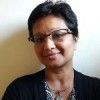For better societies, we need to teach the basics of citizenship - Give young people a confident voice
#CriticalThinking
Co-director of Active Citizen Europe

Co-director of Active Citizen Europe
What are the key ingredients of citizenship in a democracy? Philosopher Martha Nussbaum has one answer: the provision of liberal education, emphasising critical thought and creativity, and not just a production line of ‘technical machines’ for the global market.
For early 20th-century American educator John Dewey, this ‘liberal education’ is at its best when it provides means to teach democratic values in the broadest sense, as a way of being a part of one’s society,.
An education focusing on democratic citizenship should indeed encompass the learning of critical thinking skills, exploring the principles of universal rights and democracy as well as the rights and obligations which arise from being a part of an organised society. It should also include developing a sense of responsibility towards the society ‒ a feeling of belonging to it.
It can be argued that there is no conflict between a discourse that recognises pluralism or different identities and one that emphasises common interests. In the field of education, the interest in preserving democracy, peace and human rights can be seen as underpinning a focus on developing critical thought: an ability to consider multiple perspectives and a willingness to engage and promote action for change in defence of these principles.
An education focusing on democratic citizenship should encompass the learning of critical thinking skills
There are many programmes that encourage the development of critical thought through civic education or by encouraging debate on topical global themes. A good example of the latter is the Model United Nations (MUN), which predates the actual United Nations, dating back to the time of the League of Nations. Through simulation of debates on international topics and following the rules of order, students are able to explore politics and perspectives outside their own. In Europe, the European Youth Parliament and the comparatively new Global Issues Network provide students with similar opportunities to take part in different models of transnational or multicultural mock ‘political’ processes and to engage with civil society.
But while programmes such as the MUN are theoretically open to everyone, it is evident that many of the schools and universities taking part in MUN tend to have better funding and more economically privileged students. In Belgium, for example, participating in the MUN programme is more prevalent in higher than in secondary education, which excludes a great number of students from the possibility of this kind of civic education. As a result, a significant opportunity is missed for contributing to the development of ideas and ideals during younger years, when opinions are less fixed.
At Active Citizen Europe, we promote the need for citizenship programmes that are embedded in all local schools and communities from early years. These programmes encourage inclusivity and give all children a voice and means to become active members of their society.
Giving children not just a forum, but the tools and confidence to be heard and understood is crucial
Giving children not just a forum, but the tools and confidence to be heard and understood, to listen to each other and to develop participatory civic skills is crucial. Programmes must focus on providing the children with room to discuss the issues, global or local, in a safe place where their voices are heard.
Qualitative research on programmes that reduce marginalisation and tackle radicalisation show that giving children opportunities to actively engage towards the improvement of the local, regional or even national societies may be better suited to the task than more traditional models of ‘teaching’ civics.
But how can we approach citizenship through ‘active learning’ at a practical level?
First, the programmes should be built into school curricula, and they should promote the positive links between schools and wider communities.
Second, all children should be encouraged to participate and engage, and they should take the lead whenever possible in organising projects developing citizenship skills, including collaboration and communication skills.
Finally, the schools should make sure that teachers have received enough training to be able to address sensitive issues and to challenge aggressive opinions.
Democratising citizenship education means that programmes should be available for all, should start at a young age and should reflect both the local and global realities of belonging to 21st-century communities.
The generations of the future must learn skills of debate, negotiation, speaking and listening. Enhancing their sense of community is crucial in order to safeguard democracy and promote peace.
Stay informed
